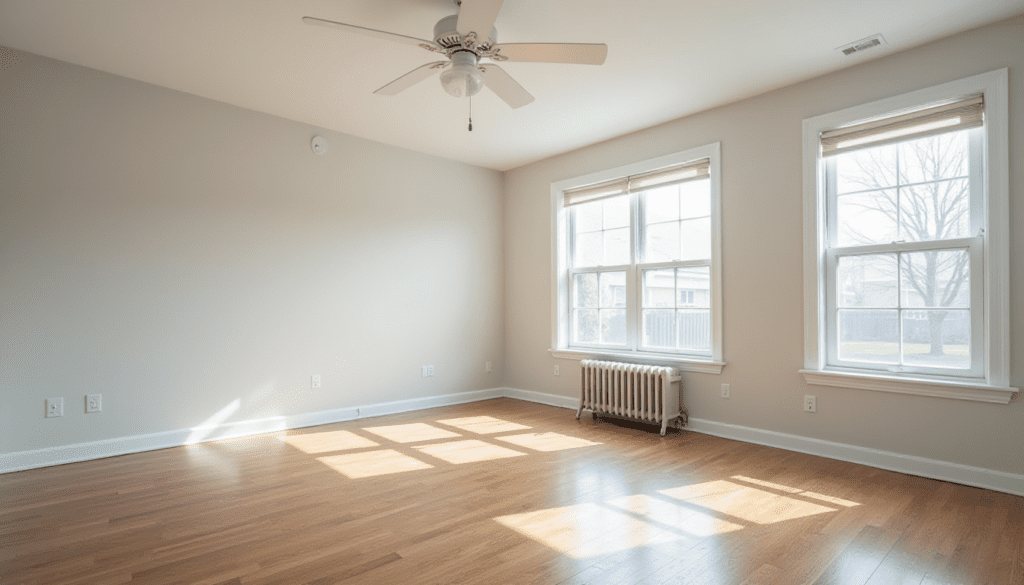WordPress Classic Editor expects line breaks and structure to be in HTML or TinyMCE formatting. When long paragraphs or full sections are copied without line breaks or block tags (like <p>, <h2>, or <ul>), it causes everything to run together in one big wall of text — which is what you’re experiencing.
Introduction: The Cost of Late Rent in Verona, NJ
Late rent is more than a frustration — it directly impacts a landlord’s cash flow, ability to maintain properties, and even their legal standing. For property owners in Verona, NJ, where rental demand is strong but local rent control laws create added complexity, consistently late rent can feel overwhelming. According to resources from the Verona Rent Control Board, landlords must carefully balance tenant rights with the need for predictable income. That means you can’t simply ignore a tenant who pays rent late every month, nor can you enforce penalties that violate local rules.
This guide walks landlords through a proven, step-by-step process to manage late-paying tenants. From lease agreements and automated rent reminders to late fees, communication strategies, and legal escalation under New Jersey law, you’ll find actionable steps designed for Verona property owners. These strategies are based on industry best practices shared by experts like Reno’s Property Management and Wilmoth Group.
Verona’s Legal Landscape: Rent Control & Landlord Rights
Before landlords in Verona take any action on late rent, it’s crucial to understand the local and state rules that govern rental agreements. Verona operates under rent control ordinances that regulate how much rents can be increased and what late fees may be enforced. The Rent Control Board is the local authority that landlords must comply with.
For example, landlords may not arbitrarily impose excessive late fees. Instead, they must stick to reasonable, pre-defined amounts set out in the lease and within local limits. Failure to follow these laws can lead to disputes, fines, or even loss of the ability to raise rents. At the same time, landlords still have the right to protect themselves from financial harm, as confirmed by property management experts like Lone Eagle Management, who specialize in Verona NJ property management. The key is to document everything and enforce rules consistently and fairly.
Step 1: Set Clear Payment Terms in the Lease Agreement
The foundation of preventing late rent begins before the tenant even moves in. A strong lease agreement sets expectations about due dates, grace periods, and penalties for late payments. According to Wilmoth Group and Beach Cities Management, clarity is what prevents excuses later.
Landlords in Verona should make sure their lease explicitly states:
- The exact rent due date each month
- Whether a grace period applies (e.g., three days after the 1st)
- The amount of any late fee, structured within Verona’s rules
- How rent must be paid (check, ACH, or online portal)
These lease clauses not only protect the landlord but also create a legal framework for taking action if payments are consistently late. By being transparent upfront, landlords reduce the chances of disputes later. As Reno’s Property Management notes, “an airtight lease is your first defense.”
Step 2: Use Automated Rent Reminders & Payment Systems
Sometimes tenants don’t pay late because they can’t — but because they forget. That’s where automation becomes a powerful tool. Automated systems send friendly reminders by text, email, or app notifications days before the rent is due. Property management companies like Fulton Grace and Wilmoth Group emphasize how these systems reduce late payments by keeping tenants accountable.
Online portals and apps not only remind tenants but also make it easier for them to pay instantly via ACH or credit card. In Verona, where many tenants may be young professionals or families balancing busy schedules, convenience can dramatically improve payment rates. Landlords who invest in simple technology may see fewer late payments without ever needing to escalate.
Step 3: Enforce Grace Periods and Late Fees Consistently
Even with reminders, some tenants will still pay late. This is where grace periods and late fees come in. In Verona, landlords must ensure their late fee structure is fair, reasonable, and compliant with rent control. According to the Verona Rent Control Board, excessive or arbitrary fees can be challenged by tenants and may be overturned.
Step 4: Initiate Friendly, Early Communication
Not every late payment signals defiance or disrespect. Often, it reflects temporary financial struggles, miscommunication, or oversight. That’s why experienced landlords in Verona recommend addressing late rent with a professional yet empathetic tone first. By initiating friendly communication early, you reduce tension and open the door to solutions.
A quick phone call, text, or polite email reminder after the grace period expires is usually enough to resolve the issue before it snowballs. According to Wilmoth Group, landlords who maintain a respectful relationship with tenants often find tenants are more willing to be transparent about financial difficulties. This transparency allows landlords to assess whether a tenant is facing a one-off problem or developing a chronic pattern.
As property managers from Fulton Grace emphasize, the tone of these conversations matters. Being firm about expectations but approachable in tone ensures you keep the landlord-tenant relationship cooperative instead of combative.
Step 5: Issue Formal Notices After Grace Period Ends
If reminders and friendly outreach do not result in payment, the next step is to escalate by issuing a formal notice. In New Jersey, landlords can serve a “Notice to Pay or Quit,” which gives the tenant a specific timeframe to pay overdue rent or face eviction proceedings. According to Osprey Rental Management, formal notices establish clear legal documentation that you attempted resolution before considering court action.
The notice should include the overdue amount, the deadline for payment, and the consequences of non-compliance. While serving this document may feel confrontational, it is an essential step in protecting the landlord’s legal rights. Resources like Wilmoth Group stress the importance of consistency—issuing notices promptly for every tenant who misses the deadline, rather than selectively.
In Verona, issuing this notice while also referencing compliance with the Rent Control Board rules demonstrates fairness and adherence to local law, which can be crucial if disputes escalate.
Step 6: Offer Payment Plans for Struggling Tenants
For tenants facing genuine financial hardship, payment plans may be a win-win solution. Rather than pushing a tenant toward eviction—which can be costly and time-consuming—landlords can work out a structured plan for catching up on overdue rent. This strategy is endorsed by experts at BC Best Law Firm, who point out that payment plans, when documented properly, can preserve tenancy and reduce vacancy risk.
Payment arrangements should always be written, signed by both parties, and clearly outline amounts, due dates, and consequences of missed payments. According to Habyt, documenting agreements prevents misunderstandings and ensures enforceability if the tenant defaults again.
In Verona, payment plans should be offered within the framework of rent control and legal requirements, making it even more important to seek guidance or align with local property managers who understand the regulations.
Step 7: Provide Incentives for On-Time or Early Payment
Late fees act as a deterrent, but positive reinforcement can also shape tenant behavior. Some landlords in Verona have found success offering small incentives for tenants who consistently pay rent on time. According to RentRedi, tenants are more likely to prioritize rent if they feel rewarded for their reliability.
Examples of incentives include modest discounts for early payment, gift cards for a streak of on-time payments, or even reporting timely rent to credit bureaus (which benefits tenants financially). NFIPMS notes that these incentives not only improve cash flow but also strengthen tenant loyalty.
However, landlords must ensure that any incentives comply with local rent control regulations in Verona. Overstepping could lead to accusations of unfair practices, which is why clear lease language and proper documentation are critical.
Step 8: Track Tenant Payment Patterns & History
When tenants repeatedly pay late, it’s not enough to handle each incident as an isolated event. Landlords in Verona should track patterns over time, documenting each instance of delayed rent. This record-keeping helps distinguish between occasional delays and chronic behavior that undermines the landlord’s financial stability.
As highlighted by Fulton Grace, keeping organized payment histories allows landlords to make better decisions about lease renewals, eviction filings, and even incentive programs. Similarly, Wilmoth Group stresses that documentation is your strongest ally in disputes, since it shows a clear timeline of missed deadlines, communications, and responses.
In Verona, where landlords operate under extra scrutiny due to rent control, having detailed records also demonstrates fairness if legal proceedings arise. It becomes easier to justify an eviction, negotiate lease renewals, or make policy adjustments with clear evidence in hand.
Step 9: Know When to Escalate – Eviction as Last Resort
Despite your best efforts, there may come a point when late payments turn into non-payments. In such cases, landlords in Verona must understand when it is appropriate to escalate the matter toward eviction. While eviction is never the first choice, it is sometimes necessary to protect property income and maintain fairness to other tenants who pay on time.
According to Reno’s Property Management and BC Best Law Firm, eviction should only be pursued after notices, communication, and payment plan options have been exhausted. New Jersey has strict rules on eviction, and landlords must follow due process or risk legal penalties.
The Osprey Rental Management blog emphasizes that eviction cases must be supported with detailed documentation of non-payment, notices served, and communication attempts. In Verona, where rent control oversight is active, a landlord’s credibility in court often depends on showing they gave tenants every opportunity to comply.
Step 10: Keep Documentation and Formal Records
Documentation is not just a best practice—it is your legal shield. Every late payment notice, email reminder, signed payment plan, and fee assessment should be recorded and stored securely. If the issue escalates to court or a rent board hearing, landlords in Verona will need to prove they acted fairly and consistently.
Experts like Wolfnest and Bay Management Group highlight that well-documented histories often mean the difference between a successful eviction ruling and a case dismissed for lack of evidence. Simple tools like spreadsheets, cloud storage, or property management software can ensure that nothing is overlooked.
In Verona, where the Rent Control Board provides oversight, keeping records is not optional—it is a necessity. Proper documentation helps landlords defend late fee policies, justify evictions, and negotiate better outcomes with tenants.
Step 11: Leverage Local Property Management Help in Verona
For many landlords, especially those managing multiple units or working full-time jobs, keeping up with late rent issues can feel like a second career. That’s why many property owners in Verona choose to partner with professional management companies such as Lone Eagle Management. These companies specialize in rent collection, tenant communication, legal compliance, and even court representation if eviction becomes necessary.
Professional managers already understand the nuances of Verona’s rent control laws, making them valuable allies in avoiding costly mistakes. By outsourcing to experts, landlords save time and reduce stress while ensuring late rent is handled efficiently and legally. For small landlords who want peace of mind, this partnership often pays for itself through fewer missed payments and faster resolutions.
Step 12: Adjust Tenant Screening to Avoid Future Issues
Sometimes the best way to manage late rent is to prevent it from happening in the first place. Strong tenant screening practices ensure you select residents who are financially stable and responsible. This includes running credit checks, verifying employment, reviewing rental history, and contacting previous landlords. According to Lone Eagle Management, this proactive step significantly reduces the risk of chronic late payments.
Fulton Grace also emphasizes that screening should be consistent, fair, and compliant with Fair Housing laws. In Verona, landlords should balance thoroughness with legality, avoiding discriminatory practices while still protecting their investment.
Step 13: Reassess Lease Terms at Renewal Time
Every lease renewal is an opportunity to make adjustments. If a tenant has had a history of late payments, landlords in Verona may choose to tighten policies, clarify grace periods, or adjust late fee structures (within rent control rules). Renewal also allows landlords to reassess whether they want to continue with the tenant at all.
As Wilmoth Group suggests, consistent late payment history may be a reason to decline renewal. This decision, when backed by documentation, is legally sound and protects the landlord’s long-term financial stability.
Step 14: Final Thoughts & Best Practices Summary
Managing tenants who consistently pay rent late in Verona, NJ requires a balance of firmness, fairness, and legal compliance. From crafting airtight leases and sending automated reminders, to offering payment plans, enforcing late fees, and knowing when to escalate, landlords must follow a structured approach.
By leveraging local expertise, staying compliant with the Rent Control Board, and tracking every tenant interaction, landlords position themselves for long-term success. And when the burden becomes too much, working with professional management companies like Lone Eagle Management can provide peace of mind.
If you are a landlord in Verona dealing with tenants who consistently pay rent late, know that you don’t have to navigate this alone. Proven strategies, careful documentation, and professional support are available to help you protect your rental income while maintaining compliance with local laws.






